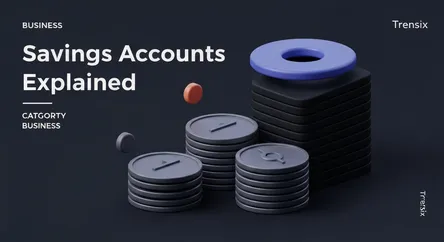Business
Savings Accounts Explained

Discover what a savings account is, how it helps you earn interest on your money, and why it's a fundamental tool for financial security.
What is it?
A savings account is a basic deposit account held at a bank or other financial institution. Its primary purpose is to allow you to set aside money you don't need for immediate daily expenses, letting it grow safely over time. Unlike a checking account, it's not designed for frequent transactions but for accumulation. Most savings accounts are insured by government agencies like the FDIC up to a certain limit, making them a very low-risk place to store cash. In return for depositing your funds, the bank pays you interest, which is a small percentage of your balance.
Why is it trending?
In an environment of rising interest rates, savings accounts, particularly high-yield savings accounts (HYSAs), have become increasingly popular. As central banks raise rates to combat inflation, the interest offered by these accounts has surged, providing returns that can actually preserve or grow the purchasing power of cash. This makes them a compelling alternative to keeping money in a low- or no-interest checking account. Economic uncertainty also drives people to build robust emergency funds, and a liquid, safe savings account is the ideal tool for that purpose.
How does it affect people?
A savings account is a cornerstone of personal financial health. It provides a secure place to build an emergency fund, which can cover unexpected expenses like medical bills or job loss without forcing a person into debt. It's also the perfect vehicle for saving toward short-term goals, such as a vacation, a car, or a down payment on a house. By separating savings from daily spending money, it encourages disciplined financial habits. The interest earned, while often modest, allows your money to grow passively, helping to offset the effects of inflation.